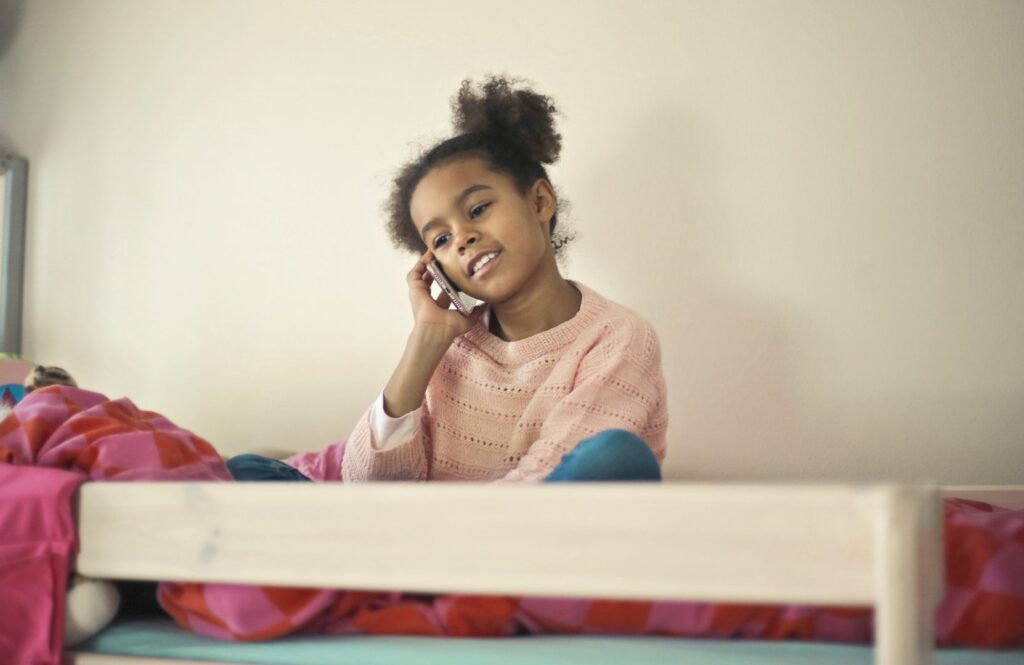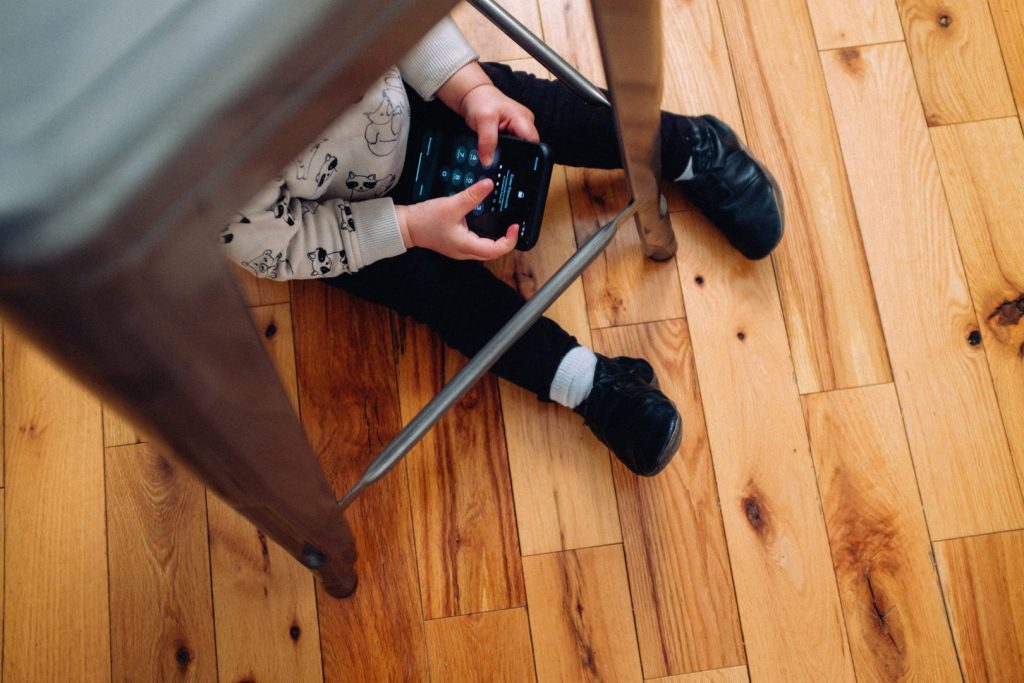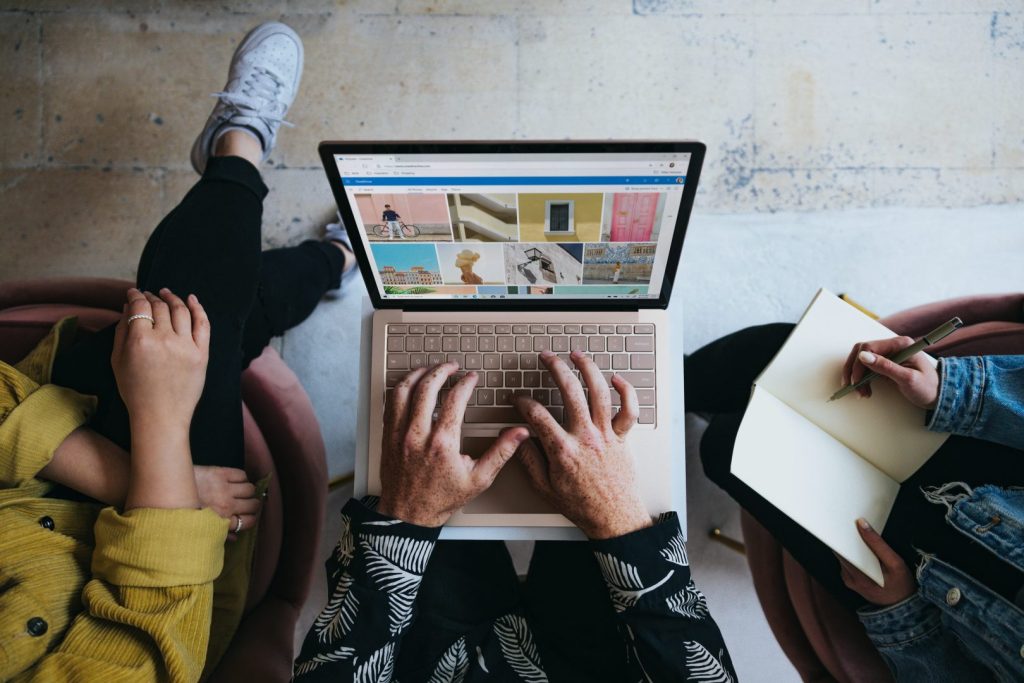Children with social media accounts can share their opinion by posting videos, images, comments, and such.
Facebook, Instagram, TikTok, YouTube, Snapchat, WhatsApp, and other social media platforms, have a lot of daily users, including children.
Your little ones can’t imagine their day without checking the latest updates on their social media accounts.
They even multitask on several network platforms at once (we, adults, can hardly manage our presence on two social media platforms). So, let’s discuss the pros and cons of children having their own social media accounts.
Pros of Children Having Their Own Social Media Accounts
In the following paragraphs, I present to you an oversight of the pros of children having their own social media accounts.
· Connection and Communication
Social media platforms bring people together at once, no matter how far they live. Due to this, children can make and maintain relationships with friends and relatives. Also, withdrawn and isolated children feel more free to communicate and interact online.

· Creativity and Self-Expression
With social media, our little pumpkins have the opportunity to self-express and show the talents they possess. Children can use social media platforms as free marketing outlets for their creative products.
Sometimes children use their creativity and imagination skills on social media platforms to sell products and even earn income.
· Educational Opportunities
Children have easy access to responsible and quality educational content on social media. Also, social media increase children’s digital skills, which are essential for today’s modern world.
Because of this, you have probably witnessed your children managing their profiles better than you.
Cons of Children Having Their Own Social Media Accounts
We saw the positive sides of your children having social media accounts. Now it’s time for the cons.
· Online Safety Risks
Many people use social media, so children can run into cyberbullies and other online dangers that intend to harm them.
Studies show that 46% of children have been bullied online, and those numbers seem to keep growing.
Therefore children must keep their profiles private and have control over the content they post on the platforms.
· Emotional and Mental Health Implications
Social media is overwhelmed with fake and unrealistic images of perfect and luxurious lifestyles. All these so-called role models and influencers make our children feel nervous and stressed.
Also, children can run into inappropriate content such as violence, aggression, and other explicit content on social media platforms.

· Time Management and Addiction
Scrolling on their smartphones from one social media account to another makes our children tech addicted.
Statistics show that about half of all teens are addicted to their smartphones, which is alarming. Excessive social media usage lowers their academic performance, social life, and health.
Guidelines for Safe Social Media Use by Children
Whenever children decide to have their own accounts, parents/caregivers need to make their online presence safe.
· Parental Supervision and Involvement
Parents/caregivers must be involved in creating their children’s profiles. Set strict rules and boundaries about limiting screen time.
Also, monitoring your children’s profiles and installing parental control software can help you manage your little ones’ online activities.
· Privacy and Security Settings
Teach your children about online safety and the importance of keeping their information private.
Parents/caregivers should encourage children to create strong passwords and never share info with strangers. Children must also recognize, report, and block inappropriate content or behavior.
Digital Literacy and Responsible Behavior
Children should be friendly and polite in the real world, but in the online world as well. Children must be responsible, aware of fake media, and stand their ground.
Also, you can’t let your little ones use tech if they don’t know how to open the app. Digital literacy is the key that unlocks a lot of gates. So, teach your children the necessary tech skills before exposing them to the virtual world.

Importance of Balancing Social Media Use and Real-Life Interactions
Have open communication with your children and promote healthy social media habits. Parents can’t prohibit children’s virtual communication but it also shouldn’t be a priority in their lives.
Encourage face-to-face communication, and engage your children in tech-free activities. Let them find out the beauty of things, such as sports, walks, talking, reading, playing puzzle games, etc.
Legal and Ethical Considerations
Almost every social media platform has a guideline for how old its users should be. Most of these platforms don’t allow children under the age of 13 to use them.
But, even if children have an account, there are legal documents that protect them, such as COPPA. Another problem with these platforms is marketing advertisement that is targeted at children.
But there are regulations regarding influencer marketing. It is prohibited to advertise illegal acts, such as drugs and violence. Also, there are regulations regarding advertisements that include gambling and alcohol.

Summary and Conclusion
Social media platforms can improve children’s communication, self-expression, learning, and creative skills.
But their life shouldn’t depend on Instagram stories or filtered images that can supposedly increase their self-esteem.
Teach your children the value of being unique and living a less techy life (I’m good at inventing new words, right?).
FAQs
What is the appropriate age for a child to have a social media account?
The appropriate age for a child to have a social media account is 13 years old.
How can parents ensure their child’s safety on social media?
Parents can ensure their child’s safety on social media by setting parental control apps, limiting screen time, content control, app blocking, and identity theft protection.
What signs indicate that a child’s social media use is becoming problematic?
Children may isolate themselves, lose interest in other activities, lower their academic performance, display anger and frustration, lose track of time, avoid social gatherings, have lowered self-esteem, and such.
How can social media platforms improve safety measures for children?
Social media platforms improve safety measures for children by allowing them to recognize, report, and block inappropriate content or users that bother them.
Are there any long-term effects of children using social media?
Comparing themselves with others on social media platforms makes children vulnerable, and the lack of communication affects their mental health, causing low self-confidence, anxiety, and depression. And let’s not even mention social media addiction which may also lead to negative physical effects, such as obesity, vision problems, and posture problems.
ALSO READ: Importance of Digital Literacy in Early Childhood Education







